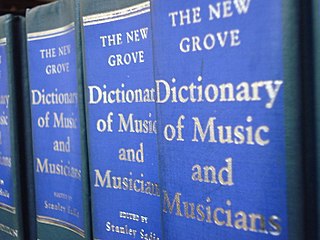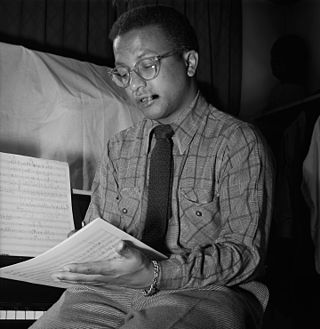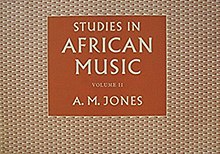Jazz is a music genre that originated in the African-American communities of New Orleans, Louisiana, in the late 19th and early 20th centuries, with its roots in blues and ragtime. Since the 1920s Jazz Age, it has been recognized as a major form of musical expression in traditional and popular music. Jazz is characterized by swing and blue notes, complex chords, call and response vocals, polyrhythms and improvisation. Jazz has roots in European harmony and African rhythmic rituals.
Ragtime, also spelled rag-time or rag time, is a musical style that flourished from the 1890s to 1910s. Its cardinal trait is its syncopated or "ragged" rhythm. Ragtime was popularized during the early 20th century by composers such as Scott Joplin, James Scott and Joseph Lamb. Ragtime pieces are typically composed for and performed on piano, though the genre has been adapted for a variety of instruments and styles. "Maple Leaf Rag", "The Entertainer", "Fig Leaf Rag", "Frog Legs Rag", and "Sensation Rag" are among the most popular songs of the genre.

Edward Kennedy "Duke" Ellington was an American jazz pianist, composer, and leader of his eponymous jazz orchestra from 1923 through the rest of his life. Born and raised in Washington, D.C., Ellington was based in New York City from the mid-1920s and gained a national profile through his orchestra's appearances at the Cotton Club in Harlem. A master at writing miniatures for the three-minute 78 rpm recording format, Ellington wrote or collaborated on more than one thousand compositions; his extensive body of work is the largest recorded personal jazz legacy, and many of his pieces have become standards. He also recorded songs written by his bandsmen, such as Juan Tizol's "Caravan", which brought a Spanish tinge to big band jazz. At the end of the 1930s, Ellington began a nearly thirty-year collaboration with composer-arranger-pianist Billy Strayhorn, whom he called his writing and arranging companion. With Strayhorn, he composed multiple extended compositions, or suites, as well as many short pieces. For a few years at the beginning of Strayhorn's involvement, Ellington's orchestra featured bassist Jimmy Blanton and tenor saxophonist Ben Webster and reached a creative peak. Some years later following a low-profile period, an appearance by Ellington and his orchestra at the Newport Jazz Festival in July 1956 led to a major revival and regular world tours. Ellington recorded for most American record companies of his era, performed in and scored several films, and composed a handful of stage musicals.

Ferdinand Joseph LaMothe, known professionally as Jelly Roll Morton, was an American ragtime and jazz pianist, bandleader, and composer. Morton was jazz's first arranger, proving that a genre rooted in improvisation could retain its essential characteristics when notated. His composition "Jelly Roll Blues", published in 1915, was one of the first published jazz compositions. He also claimed to have invented the genre.

The Jazz Age was a period in the 1920s and 1930s in which jazz music and dance styles gained worldwide popularity. The Jazz Age's cultural repercussions were primarily felt in the United States, the birthplace of jazz. Originating in New Orleans as mainly sourced from the culture of African Americans, jazz played a significant part in wider cultural changes in this period, and its influence on popular culture continued long afterwards. The Jazz Age is often referred to in conjunction with the Roaring Twenties, and in the United States, it overlapped in significant cross-cultural ways with the Prohibition Era. The movement was largely affected by the introduction of radios nationwide. During this time, the Jazz Age was intertwined with the developing youth culture. The movement also helped start the beginning of the European Jazz movement.

The New Grove Dictionary of Music and Musicians is an encyclopedic dictionary of music and musicians. Along with the German-language Die Musik in Geschichte und Gegenwart, it is one of the largest reference works on the history and theory of music. Earlier editions were published under the titles A Dictionary of Music and Musicians, and Grove's Dictionary of Music and Musicians; the work has gone through several editions since the 19th century and is widely used. In recent years it has been made available as an electronic resource called Grove Music Online, which is now an important part of Oxford Music Online.

John Aaron Lewis was an American jazz pianist, composer and arranger, best known as the founder and musical director of the Modern Jazz Quartet.

The jive is a dance style that originated in the United States from the African Americans in the early 1930s. The name of the dance comes from the name of a form of African-American vernacular slang, popularized in the 1930s by the publication of a dictionary by Cab Calloway, the famous jazz bandleader and singer. In competition ballroom dancing, the jive is often grouped with the Latin-inspired ballroom dances, though its roots are based on swing dancing and not Latin dancing.

Gunther Alexander Schuller was an American composer, conductor, horn player, author, historian, educator, publisher, and jazz musician.
Ewe music is the music of the Ewe people of Togo, Ghana, and Benin, West Africa. Instrumentation is primarily percussive and rhythmically the music features great metrical complexity. Its highest form is in dance music including a drum orchestra, but there are also work, play, and other songs. Ewe music is featured in A. M. Jones's Studies in African Music.

The Count Basie Orchestra is a 16 to 18 piece big band, one of the most prominent jazz performing groups of the swing era, founded by Count Basie in 1935 and recording regularly from 1936. Despite a brief disbandment at the beginning of the 1950s, the band survived long past the Big Band era itself and the death of Basie in 1984. It continues under the direction of trumpeter Scotty Barnhart.
Walter Sylvester Page was an American jazz multi-instrumentalist and bandleader, best known for his groundbreaking work as a double bass player with Walter Page's Blue Devils and the Count Basie Orchestra.
"Prelude to a Kiss" is a 1938 ballad composed by Duke Ellington, with lyrics by Irving Gordon and Irving Mills.

"Chelsea Bridge" (1941) is an impressionistic jazz standard composed by Billy Strayhorn.
Third stream is a music genre that is a fusion of jazz and classical music. The term was coined in 1957 by composer Gunther Schuller in a lecture at Brandeis University. Improvisation is generally seen as a vital component of third stream.

Symphony in Black: A Rhapsody of Negro Life is a 9+1⁄2-minute musical short produced in 1935 that features Duke Ellington’s early extended piece, "A Rhapsody of Negro Life". The film, Billie Holiday’s screen debut, was directed by Fred Waller and distributed by Paramount Pictures.
All Set, for jazz ensemble, is a 1957 composition for small jazz band by the American composer Milton Babbitt.
George Siravo was a composer, arranger, conductor, saxophonist, and clarinetist.

Early Jazz: Its Roots and Musical Development, by Gunther Schuller, is a seminal study of jazz from its origins through the early 1930s, first published in 1968. It has since been translated into five languages. When it was published, it was the first volume of a projected two volume history of jazz through the Swing era. The book takes an enthusiastic tone to its subject. A notable feature of the series is transcriptions of jazz performances, which increase its value for the musically literate.











